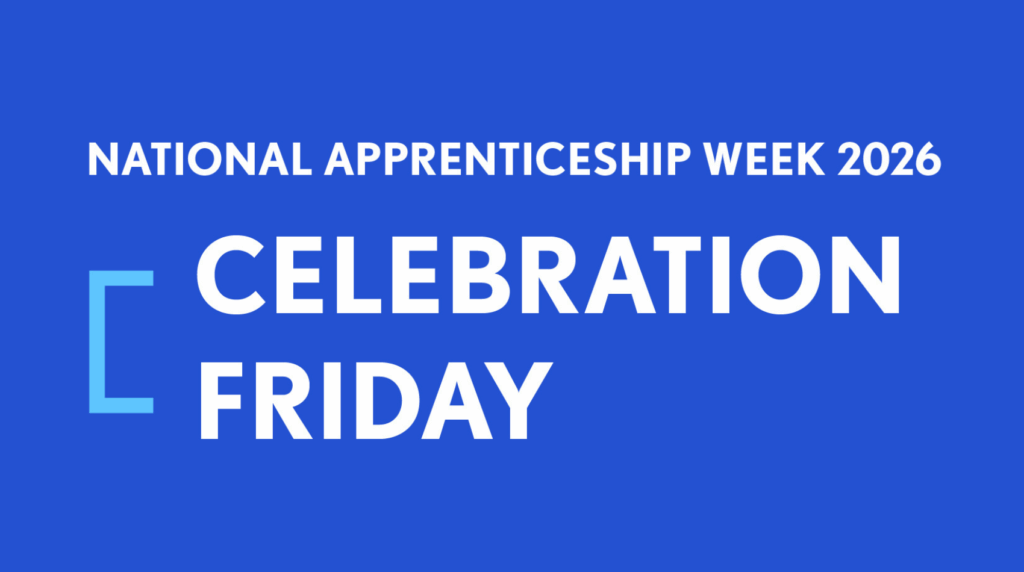Abi Hickey,
Content Creator
22nd August 2024
How does off-the-job training work?
If you’re an apprentice or considering becoming one, you’ve likely come across the term ‘off-the-job training’ and wondered what it’s all about.
Off-the-job training involves learning new skills and gaining knowledge outside of your regular work duties. It’s dedicated time to help you build your expertise and achieve the best results in your apprenticeship. Best of all, it happens during your working hours, so you don’t have to worry about fitting it into your free time.
What does off-the-job training mean?
The government’s definition of off-the-job training is “It is training which is received by the apprentice within their practical period, during the apprentice’s normal working hours, to achieve the knowledge, skills and behaviours of the apprenticeship they are undertaking. By normal working hours, we mean the hours for which the apprentice would normally be paid, excluding overtime”
Why is off-the-job learning important?
You’ll need to spend 20% of your working week on off-the-job training. this time is all about giving you the time to focus on what you need to learn. This training is all about making sure you have a range of knowledge and are ready for anything you may need to take on.
What counts as off-the-job training?
Off-the-job can be pretty varied, meaning many things can count toward this time. Some things that count are :
Theory learning – this could be through lectures and online courses.
Practical training – activities like shadowing a colleague, mentoring sessions and industry visits.
How does this fit in with on-the-job training?
Off-the-job training is super important and a key part of your apprenticeship, it works alongside your on-the-job training. Your employer will train you to do your job duties and you will apply what you learn from both in real-world situations. It’s a great way to expand your knowledge about what you are learning.
Some tips for apprentices
Make sure your time management is good – make sure you’re using all your off-the-job training
hours each week. This can be spread out in different ways so it doesn’t have to be all at once, your employer will help you decide how to do this.
Ask for help!
If you feel like you are struggling whether it is Maths or English or something specific to your apprenticeship, let your trainer know, They’re there to help you and can provide extra support and resources to help you.
Speak up
If you feel like you’re missing out on any part of your training, talk to your employer or trainer.
Conclusion
Off-the-job training is such a key part of apprenticeships, that it’s your time to have a deeper look into learning new knowledge and skills that will help you in your day-to-day job. So make sure to embrace it and ask for support when you need it.
For more detailed information you can always check out the GOV website.
————–
For further insights and guidance on maximising your apprenticeship funding, please don’t hesitate to reach out to us at:
Tel: 023 8017 0380
Email: hello@kiwieducation.co.uk
Kiwi & Yuzu Ltd is committed to empowering businesses and individuals through quality education, training, and skills development.
Employers
Read More
Individuals
Available Courses
International
Our Partnerships


